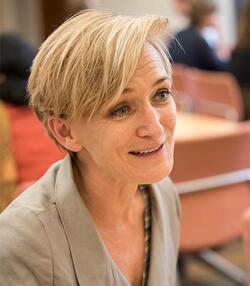Past Lewis Walpole Library Lectures
2026: 28th Lewis Walpole Library Lecture
Thursday, February 12, 2026, 5:30PM
Robert L. McNeil, Jr., Lecture Hall, Yale University Art Gallery, 1111 Chapel Street, New Haven, CT 06510
Art and Truth: William Hogarth and the English Enlightenment
by Frédéric Ogée, Emeritus Professor of British Literature and Art History at Université Paris Cité and École du Louvre
William Hogarth was a pioneering painter and engraver of 18th-century Britain and is often considered as one of the most important figures in the rise of an English school of art. His art engaged in an unprecedented manner with the ideas, debates, and values of the English Enlightenment, translating them into accessible visual narratives, encouraging the development of active critical thinking. As such his art reflected and nourished the English Enlightenment’s empiricist agenda—the idea that knowledge comes from observation and experience—to which he gave accessible visibility by bringing art into the realm of popular culture and public discourse, and putting the distinctions between ‘high’ and ‘low’ art under serious stress. His major contribution to the promotion of a ‘modern’ (and English) conception of art is the unflinching priority he always gave to truth over beauty in his representations, a feature, remarkably, that has remained characteristic of British art ever since.
Image: William Hogarth, born in London, England, 1697; active in England; died in London, England, 1764, Self-Portrait, ca. 1735, Oil on canvas, Yale Center for British Art, Paul Mellon Collection, B1981.25.360
 Frédéric Ogée is Emeritus Professor of British Literature and Art History at Université Paris Cité and Ecole du Louvre. His main period of research is the long 18th-century, and his publications include two collections of essays on William Hogarth, as well as ‘Better in France’? The circulation of ideas across the Channel in the 18th century (Lewisburg, 2005), Diderot and European Culture (Oxford, 2006; repr.2009), J.M.W. Turner, Les Paysages absolus (Paris, 2010) and Jardins et Civilisations (Valenciennes, 2019), following a conference at the European Institute for Gardens and Landscapes in Caen. In 2006-07, he curated the first-ever exhibition of Hogarth for the Louvre Museum. He is currently working on a series of four large monographs in French on 18th- and 19th-century British artists. The first one, Thomas Lawrence–Le genie du portrait anglais came out in December 2022. The second one, on J.M.W.Turner, will be published early 2026. From 2014 to 2017 he was a member of Tate Britain’s Advisory Council in London, and from 2014 to 2021 a member of the City of Paris Scientific Council. In 2018-19 he was Kress Fellow in the Literature of Art at the Clark Art Institute and then the William Allan Neilson Professor at Smith College, both in Massachusetts, USA. From September 2025 he will serve as member of the Paul Mellon Centre’s Advisory Council in London.
Frédéric Ogée is Emeritus Professor of British Literature and Art History at Université Paris Cité and Ecole du Louvre. His main period of research is the long 18th-century, and his publications include two collections of essays on William Hogarth, as well as ‘Better in France’? The circulation of ideas across the Channel in the 18th century (Lewisburg, 2005), Diderot and European Culture (Oxford, 2006; repr.2009), J.M.W. Turner, Les Paysages absolus (Paris, 2010) and Jardins et Civilisations (Valenciennes, 2019), following a conference at the European Institute for Gardens and Landscapes in Caen. In 2006-07, he curated the first-ever exhibition of Hogarth for the Louvre Museum. He is currently working on a series of four large monographs in French on 18th- and 19th-century British artists. The first one, Thomas Lawrence–Le genie du portrait anglais came out in December 2022. The second one, on J.M.W.Turner, will be published early 2026. From 2014 to 2017 he was a member of Tate Britain’s Advisory Council in London, and from 2014 to 2021 a member of the City of Paris Scientific Council. In 2018-19 he was Kress Fellow in the Literature of Art at the Clark Art Institute and then the William Allan Neilson Professor at Smith College, both in Massachusetts, USA. From September 2025 he will serve as member of the Paul Mellon Centre’s Advisory Council in London.
2025: 27th Lewis Walpole Library Lecture
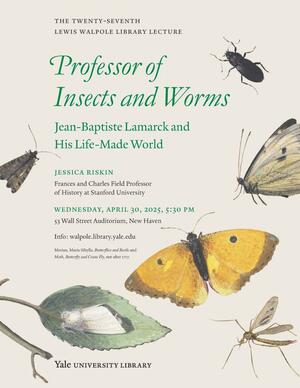 Professor of Insects and Worms: Jean-Baptiste Lamarck and his Life-Made World
Professor of Insects and Worms: Jean-Baptiste Lamarck and his Life-Made World
by Jessica Riskin, Frances and Charles Field Professor of History, Stanford University
Wednesday, April 30, 2025 5:30 pm
53 Wall Street Auditorium, New Haven
Jean-Baptiste Lamarck (1744-1829) was the Professor of Insects and Worms at the Museum of Natural History in Paris. Living through the storms of the French Revolution and Napoleonic period, he founded biology, coining the term to name a new science devoted to all and only living things, and authored the first theory of evolution. Lamarck’s science was foundational to modern biology, yet its radicalism - he usurped God’s monopoly on Creation and re-assigned it to mortal, living beings - brought him and his ideas plenty of trouble. During Lamarck’s lifetime, Napoleon and his scientific inner circle hated him and did what they could to undermine him. Charles Darwin then adopted central elements of Lamarck’s theory, but after Darwin’s death, his most influential followers re-interpreted his theory to eradicate all traces of Lamarckism, rendering organisms once again the passive objects of outside forces, allowing room for an omnipotent God working behind the scenes. This conception of living organisms as passive in the evolutionary process has remained dominant since the turn of the twentieth century. In contrast, in Lamarck’s theory, living beings were active, creative, self-making and world-making. Elements of this very different conception of living organisms have recently, gradually been returning to mainstream biology in fields such as niche construction and epigenetic inheritance.
The lecture will present Lamarck’s radical, embattled, and perhaps re-emerging approach to living things, their evolutionary and ecological agency, and the science that studies them.
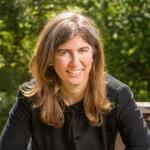 Jessica Riskin teaches modern European history and the history of science. Her work examines the changing nature of scientific explanation, the relations of science, culture and politics, and the history of theories of life and mind. Her books include The Restless Clock: A History of the Centuries-Long Argument over What Makes Living Things Tick (2016), which was awarded the 2021 Patrick Suppes Prize in the History of Science from the American Philosophical Society, and Science in the Age of Sensibility (2002), which received the American Historical Association’s J. Russell Major prize for best book in French history. She is a regular contributor to various publications including Aeon, the Los Angeles Review of Books, and the New York Review of Books.
Jessica Riskin teaches modern European history and the history of science. Her work examines the changing nature of scientific explanation, the relations of science, culture and politics, and the history of theories of life and mind. Her books include The Restless Clock: A History of the Centuries-Long Argument over What Makes Living Things Tick (2016), which was awarded the 2021 Patrick Suppes Prize in the History of Science from the American Philosophical Society, and Science in the Age of Sensibility (2002), which received the American Historical Association’s J. Russell Major prize for best book in French history. She is a regular contributor to various publications including Aeon, the Los Angeles Review of Books, and the New York Review of Books.
2024: The 26th Lewis Walpole Library Lecture
Music on the Dark Side of 1800: Listening to the Blind Virtuosa, Mademoiselle Paradis
Thursday, March 28, 2024, 5:30 pm, Yale University Art Gallery
delivered by Annette Richards, Given Foundation Professor in the Humanities and University Organist, Cornell University
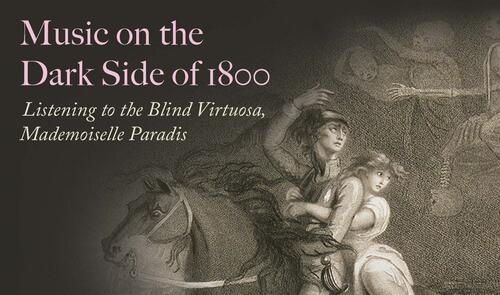 In concerts across Europe in the 1780s, the young Viennese virtuosa Maria Theresia Paradis made blindness visible, even audible. Her performances invited listeners and viewers primed by horror ballads and literary romance to experience her story of trauma and misfortune within the frame of fictional narratives of doomed innocence and victimized Gothic heroines. Yet her outspoken views on blindness, informed by her own experience and contemporary philosophical discourse (by Diderot, Condillac, and Herder, among many others) explicitly resisted the language of victimization, even as she sold pity for profit. This lecture brings to sounding life the Paridisian contradiction between performing disability for money and resisting pity. It asks what 18th-century music culture can tell us about contemporary views on blindness and explores the ways the public performances of a young female virtuoso simultaneously embraced and critiqued a culture of gawking spectatorship, freak show aesthetics, and the ethics and economics of pity. How did this Gothic musical heroine capture the public imagination, and what does she reveal about how music looked and sounded on the dark side of 1800?
In concerts across Europe in the 1780s, the young Viennese virtuosa Maria Theresia Paradis made blindness visible, even audible. Her performances invited listeners and viewers primed by horror ballads and literary romance to experience her story of trauma and misfortune within the frame of fictional narratives of doomed innocence and victimized Gothic heroines. Yet her outspoken views on blindness, informed by her own experience and contemporary philosophical discourse (by Diderot, Condillac, and Herder, among many others) explicitly resisted the language of victimization, even as she sold pity for profit. This lecture brings to sounding life the Paridisian contradiction between performing disability for money and resisting pity. It asks what 18th-century music culture can tell us about contemporary views on blindness and explores the ways the public performances of a young female virtuoso simultaneously embraced and critiqued a culture of gawking spectatorship, freak show aesthetics, and the ethics and economics of pity. How did this Gothic musical heroine capture the public imagination, and what does she reveal about how music looked and sounded on the dark side of 1800?
Annette Richards is Professor of Music and University Organist at Cornell, and the Executive Director of the Westfield Center for Historical Keyboard Studies. She is a performer and scholar with a specialty in 18th-century music and aesthetics, and interdisciplinary research into music, literature and visual culture.
2022: The Twenty-Fifth Lewis Walpole Library Lecture
Thursday, October 13, 2022 5:30 PM
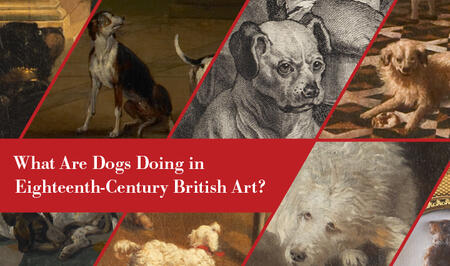
What are dogs doing in eighteenth-century British art?
Thomas W. Laqueur
Helen Fawcett Distinguished Professor of History, Emeritus,
University of California, Berkeley.
Prof. Laqueur will be speaking about the ways in which dogs mediate human sociability and more specifically about how they function formally in art to bind together the various elements– human and material– of an image. He will discuss images of dogs in the studies of scholars, like portrait of Walpole and his dog in the Library at Strawberry Hill, and move on to a discussion of the various contexts in which it might be understood: from the paintings of Carpaccio and Rubens to the eighteenth century and beyond; dogs in eighteenth century British art from Hogarth’s “Self Portrait” to the many family scenes of the period; and then more generally dogs in art as they constitute part of a symbolic system– world making and critical in our social cognition. A short coda on interpreting Balak, the most famous dog in Hebrew literature, in the Isreali Nobel Prize winning novelist Shmuel Yosef Agnon’s greatest novel–Only Yesterday– will get us back to Walpole in his study and the question the lecture poses: what are all those dogs doing in Eighteenth Century British art?
 Thomas Laqueur is Helen Fawcett Distinguished Professor of History, Emeritus at UC Berkeley. He has written on the history of sexuality, of death and commemoration, of religion, and of human rights and humanitarianism. His most recent book is The Work of the Dead: A Cultural History of Mortal Remains. Laqueur is a regular contributor to the London Review of Books, The Three Penny Review and other journals. He is currently writing a series of essays each organized around what dogs are doing in canonical works of art by among others Giotto, Piero di Cosimo, Titian, Durer, Veronese, Valasquez, and Goya as well around other images and artifacts—paw prints on Babylonian cuneiform tiles and Neolithic rock painting.
Thomas Laqueur is Helen Fawcett Distinguished Professor of History, Emeritus at UC Berkeley. He has written on the history of sexuality, of death and commemoration, of religion, and of human rights and humanitarianism. His most recent book is The Work of the Dead: A Cultural History of Mortal Remains. Laqueur is a regular contributor to the London Review of Books, The Three Penny Review and other journals. He is currently writing a series of essays each organized around what dogs are doing in canonical works of art by among others Giotto, Piero di Cosimo, Titian, Durer, Veronese, Valasquez, and Goya as well around other images and artifacts—paw prints on Babylonian cuneiform tiles and Neolithic rock painting.
https://history.berkeley.edu/people/faculty/emeritus/thomas-w-laqueur
2019: Twenty-Fourth Lewis Walpole Library Lecture
Thursday, April 4, 2019, 5:30 PM
Was There an American Enlightenment?
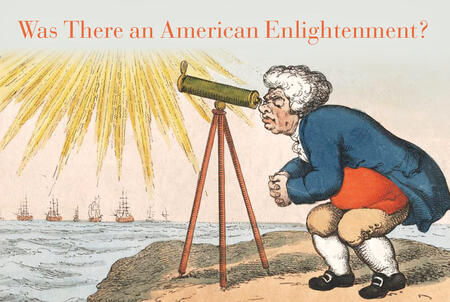
Anthony P. Meier Family Professor in the Humanities, and
Director, Stanford Humanities Center
The American Enlightenment is often viewed as a singular era bursting with new ideas as the U.S. sought to assert itself in a new republic free of the British monarchy. In this talk, Stanford historian Caroline Winterer shows how the myth and romanticization of an American Enlightenment was invented during the Cold War to calm fears of totalitarianism overseas. She’ll then look behind the 20th-century mythology, rescuing a “real” eighteenth-century American Enlightenment that is far different than the one we usually imagine.
Location: Yale Center for British Art Lecture Hall, 1080 Chapel St., New Haven
——————————————————————————————————-
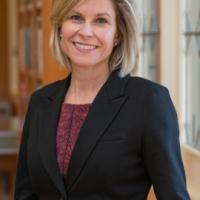 Caroline Winterer is Anthony P. Meier Family Professor in the Humanities and Director of the Stanford Humanities Center. She is an American historian, with special expertise in American thought and culture. Her most recent book is American Enlightenments: Pursuing Happiness in the Age of Reason (Yale, 2016). Winterer’s other books include The Mirror of Antiquity: American Women and the Classical Tradition, 1750-1900 (2007) and The Culture of Classicism: Ancient Greece and Rome in American Intellectual Life, 1780-1910 (2002).
Caroline Winterer is Anthony P. Meier Family Professor in the Humanities and Director of the Stanford Humanities Center. She is an American historian, with special expertise in American thought and culture. Her most recent book is American Enlightenments: Pursuing Happiness in the Age of Reason (Yale, 2016). Winterer’s other books include The Mirror of Antiquity: American Women and the Classical Tradition, 1750-1900 (2007) and The Culture of Classicism: Ancient Greece and Rome in American Intellectual Life, 1780-1910 (2002).
For mapping the social network of Benjamin Franklin she received an American Ingenuity Award from the Smithsonian Institution; an article about the project appeared in Smithsonian Magazine(Dec. 2013). She has received fellowships from the Mellon Foundation, the National Endowment for the Humanities, the National Humanities Center, the Stanford Humanities Center, and the Spencer Foundation, among others. She has published peer-reviewed articles in the American Historical Review, Journal of American History, William and Mary Quarterly, American Quarterly, Journal of the Early Republic, Eighteenth-Century Studies, and Modern Intellectual History. Winterer has also curated two exhibits of rare books and artifacts: Ancient Rome & America at the National Constitution Center in Philadelphia (2010) and also The American Enlightenment at the Stanford Library (2011).
Image: Thomas Rowlandson after G.M. Woodward, Iohn Bull Making Observations on the Comet, 1807
2018: Twenty-third Lewis Walpole Library Lecture
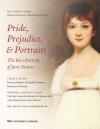
Pride, Prejudice and Portraits: The Rice Portrait of Jane Austen
Claudia L. Johnson, Murray Professor of English Literature, Princeton University
April 4, 2018
2016: Twenty-second Lewis Walpole Library Lecture
 Mr. Boswell Goes to Corsica: Charismatic Authority in the Age of Democratic Revolutions
Mr. Boswell Goes to Corsica: Charismatic Authority in the Age of Democratic Revolutions
David A. Bell, Sidney and Ruth Lapidus Professor, Department of History, Princeton University
October 6, 2016
2014: Twenty-first Lewis Walpole Library Lecture
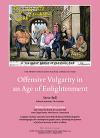 Offensive Vulgarity in an Age of Enlightenment
Offensive Vulgarity in an Age of Enlightenment
Steve Bell, principal editorial cartoonist for The Guardian
Thursday, October 23, 2014
2013: Twentieth Lewis Walpole Library Lecture
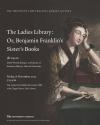 The Ladies Library: Or, Benjamin Franklin’s Sister’s Books
The Ladies Library: Or, Benjamin Franklin’s Sister’s Books
Jill Lepore, David Woods Kemper ‘41 Professor of American History, Harvard University
November 8, 2013
2012: Nineteenth Lewis Walpole Library Lecture
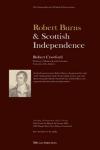 Robert Burns and Scottish Independence
Robert Burns and Scottish Independence
Robert Crawford, Professor of Modern Scottish Literature, University of St. Andrews
September 20, 2012
2011: Eighteenth Lewis Walpole Library Lecture
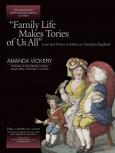 Family Life Makes Tories of Us All”: Love and Power at Home in Georgian England
Family Life Makes Tories of Us All”: Love and Power at Home in Georgian England
Amanda Vickery, Professor of Early Modern History, Queen Mary, University of London
October 21, 2011
2010: Seventeenth Lewis Walpole Library Lecture
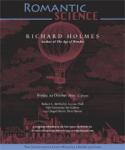 Romantic Science
Romantic Science
Richard Holmes
Author of The Age of Wonder
October 29, 2010
2009: Sixteenth Lewis Walpole Library Lecture
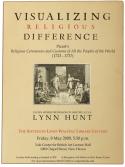 Visualizing Religious Difference: Picart’s Religious Ceremonies and Customs of All the Peoples of the World (1723-1737)
Visualizing Religious Difference: Picart’s Religious Ceremonies and Customs of All the Peoples of the World (1723-1737)
Lynn Hunt
Eugen Weber Professor of History, UCLA
May 8, 2009
2008: Fifteenth Lewis Walpole Library Lecture
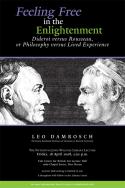 Feeling Free in the Enlightenment: Diderot versus Rousseau, or, Philosophy versus Lived Experience
Feeling Free in the Enlightenment: Diderot versus Rousseau, or, Philosophy versus Lived Experience
by Leo Damrosch
the Ernest Bernbaum Professor of Literature at Harvard University
April 18, 2008
2007: Fourteenth Lewis Walpole Library Lecture
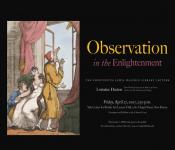 Observation in the Enlightenment
Observation in the Enlightenment
by Lorraine Daston
Max Planck Institute for the History of Science, Berlin, and The University of Chicago
April 27, 2007
2006: Thirteenth Lewis Walpole Library Lecture
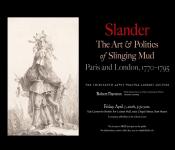 Slander: The Art and Politics of Slinging Mud, Paris and London, 1770-1795
Slander: The Art and Politics of Slinging Mud, Paris and London, 1770-1795
by Robert Darnton
Shelby Cullom Davis ‘30 Professor of European History, Princeton University
April 7, 2006
2005: Twelfth Lewis Walpole Library Lecture
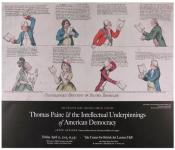 Thomas Paine and the Intellectual Underpinnings of American Democracy
Thomas Paine and the Intellectual Underpinnings of American Democracy
by Joyce Appleby
Professor Emerita of History, UCLA
April 22, 2005
2004: Eleventh Lewis Walpole Library Lecture
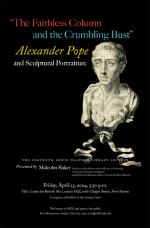 ‘The Faithless Column and the Crumbling Bust’: Alexander Pope and Sculptural Portraiture
‘The Faithless Column and the Crumbling Bust’: Alexander Pope and Sculptural Portraiture
by Malcolm Baker
Professorial Research Fellow, Victoria and Albert Museum, London, and Professor, Art History and The History of Collecting, University of Southern California
April 23, 2004
2003: Tenth Lewis Walpole Library Lecture
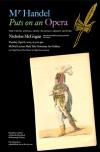 Mr. Handel Puts on an Opera
Mr. Handel Puts on an Opera
by Nicholas McGegan
Music Director, Philharmonia Baroque Orchestra, San Francisco
April 8, 2003
2002: Ninth Lewis Walpole Library Lecture
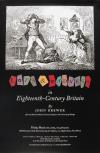 Love and Madness in Eighteenth-Century Britain
Love and Madness in Eighteenth-Century Britain
by John Brewer
John and Marion Sullivan University Professor, The University of Chicago
March 1, 2002
Country House weekend held in conjunction with the Lecture
March 1-3, 2002, Farmington
2001: Eighth Lewis Walpole Library Lecture
Et in Arcadia ego: The Eighteenth Century of the 1920s
by Terry Castle
Walter A. Haas Professor in the Humanities, Stanford University
February 16, 2001
1999: Lectures
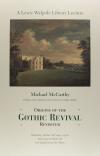 Origins of the Gothic Revival Revisited
Origins of the Gothic Revival Revisited
by Michael McCarthy
Professor of the History of Art, University College Dublin
October 20, 1999
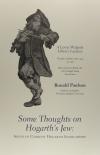 Some Thoughts on Hogarth’s Jew: Issues in Current Hogarth Scholarship
Some Thoughts on Hogarth’s Jew: Issues in Current Hogarth Scholarship
by Ronald Paulson
Professor of English, The Johns Hopkins University
October 19, 1999
1999: Seventh Lewis Walpole Library Lecture
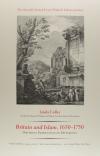 Britain and Islam, 1650-1750: Different Perspectives on Difference
Britain and Islam, 1650-1750: Different Perspectives on Difference
by Linda Colley
Leverhulme Research Professor of History, London School of Economics
October 15, 1999
1998: Sixth Lewis Walpole Library Lecture
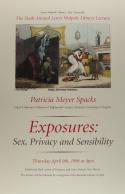 Exposures: Sex, Privacy and Sensibility
Exposures: Sex, Privacy and Sensibility
by Patricia Meyer Spacks
Edgar F. Shannon Professor of Eighteenth-Century Literature, The University of Virginia
April 9, 1998
1997: Fifth Lewis Walpole Library Lecture
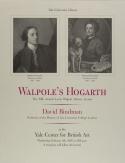 Walpole’s Hogarth
Walpole’s Hogarth
by David Bindman
Professor of the History of Art, University College London
February 5, 1997
1995: Fourth Lewis Walpole Library Lecture
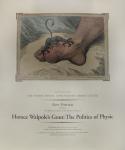 Horace Walpole’s Gout: The Politics of Physic
Horace Walpole’s Gout: The Politics of Physic
by Roy Porter
Professor, The Wellcome Institute for the History of Medicine
April 5, 1995
1994: Third Lewis Walpole Library Lecture
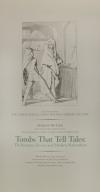 Tombs That Tell Tales: the Romance Revival and Modern Nationalism
Tombs That Tell Tales: the Romance Revival and Modern Nationalism
by Marilyn Butler
Rector, Exeter College, Oxford University
March 24, 1994
1993: Second Lewis Walpole Library Lecture
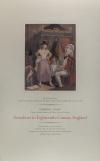 Sexualities in Eighteenth-Century England
Sexualities in Eighteenth-Century England
by Lawrence Stone
Professor Emeritus, Department of History, Princeton University
April 15, 1993
1992: First Lewis Walpole Library Lecture
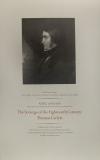 The Scourge of the Eighteenth Century: Thomas Carlyle
The Scourge of the Eighteenth Century: Thomas Carlyle
by Noel Annan
author of Our Age: English Intellectuals between the World Wars
April 8, 1992
